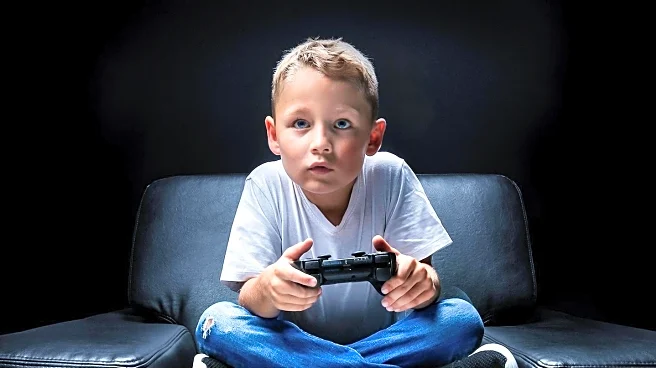What's Happening?
A new report has detailed Prince Andrew's daily routine, revealing a lifestyle marked by isolation and leisure activities such as playing video games. The 65-year-old prince, who has no ceremonial engagements,
spends much of his time at Royal Lodge, a 30-bedroom mansion, playing Call of Duty and watching television. His social life is reportedly limited, with insiders describing a routine that includes late mornings, breakfast served by staff, and hours spent in front of a large screen. The report suggests that Andrew's life has become increasingly withdrawn, with few activities beyond occasional rides and watching movies.
Why It's Important?
The revelations about Prince Andrew's lifestyle underscore the impact of his withdrawal from public duties following the scandal involving Jeffrey Epstein. The prince's isolated routine reflects the consequences of his diminished role within the royal family and the ongoing scrutiny he faces. This situation highlights the challenges faced by individuals in the public eye who are embroiled in controversy, as well as the personal toll such scandals can take. The report may influence public perception of Andrew and the royal family, raising questions about the responsibilities and expectations of royals.
What's Next?
As the pheasant shooting season approaches, Andrew's social life may see some improvement, providing opportunities for interaction and engagement. However, the ongoing scrutiny and public interest in his lifestyle may continue to affect his reputation and the royal family's image. The situation may prompt further discussions about the role of royals who are no longer active in public duties and the support systems available to them.
Beyond the Headlines
The report highlights broader issues of mental health and well-being for individuals facing public scrutiny and isolation. It raises questions about the support and resources available to royals who are no longer active in public roles, as well as the impact of such lifestyles on personal relationships and mental health. The situation may prompt discussions about the responsibilities of the monarchy in addressing the well-being of its members.









